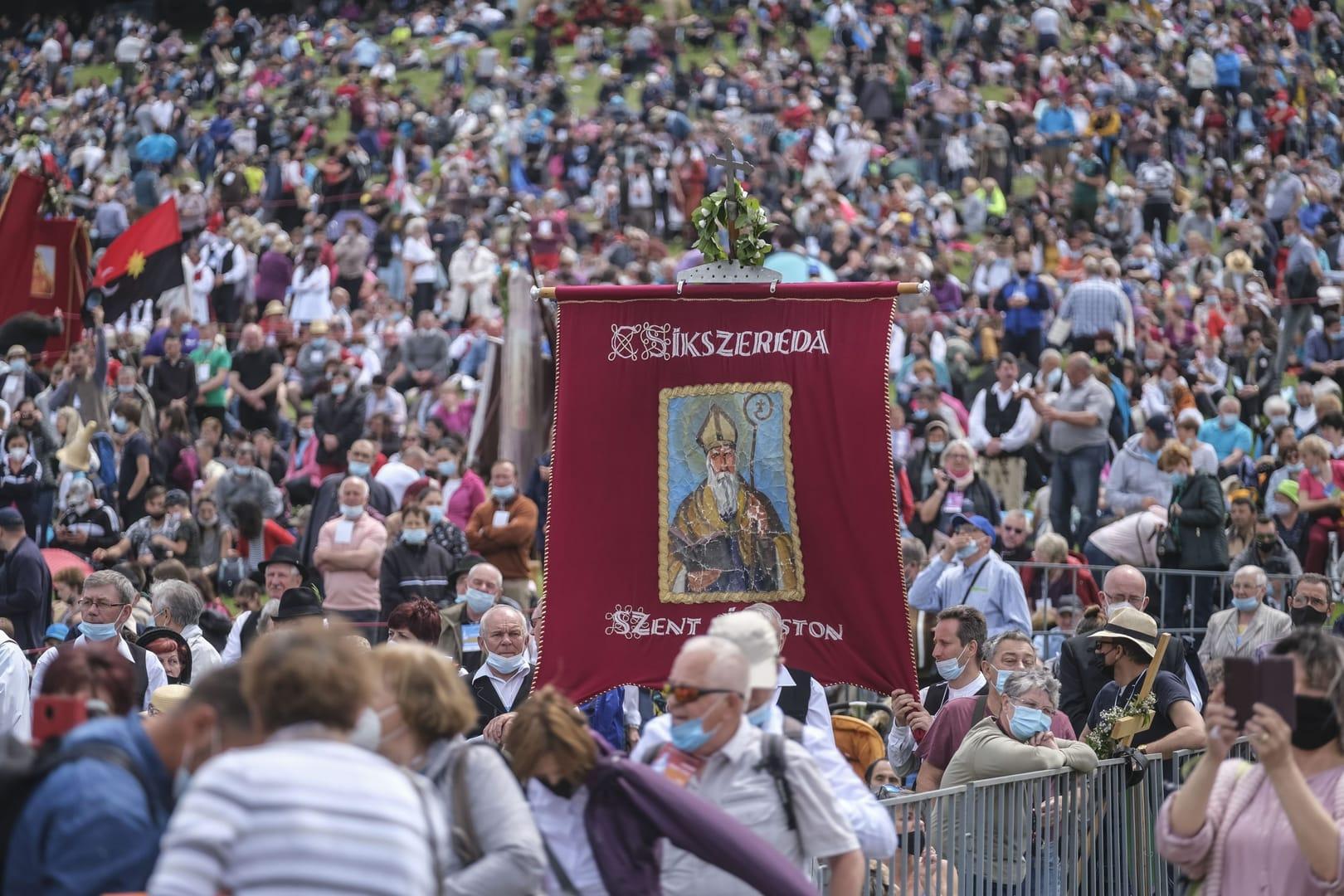This Sunday, the Church concludes her celebration of the Easter Season with the high feast of Pentecost. The word literally means “the 50th day,” since it marks the 50th day since the Resurrection of the Lord Jesus.
The feast day is not unique to the Christian faith. It originated in the Old Covenant, where it is called Shavuot in Hebrew. The word means “weeks,” since it marks seven weeks from the Passover. Shavuot/Pentecost was a harvest festival and it celebrated the giving of the Law to Moses at Mount Sinai 50 days after Passover.
There is a profound spiritual connection between the Passover, as the definitive feast day of liberation, and the Shavuot/Pentecost, as the celebration of God’s covenant. The two holy days complement one another and emphasis different aspects of the same mystery, namely, God’s favoring of his people and their status as Chosen People in him.
The profundity of this mystery is clear in the Old Covenant, but it is infinitely fulfilled and powerfully displayed beyond imagination in the Paschal Mystery and the Pentecost of the New Covenant, where the Messiah, the long-awaited Anointed Savior, came among us and elevated and completed what was begun in former times. And the reality that such a Messiah was in fact God himself only exacerbates the power and beauty of these events and of our divine election in him.
The Acts of the Apostles describes the Pentecost event. The apostles were gathered together in the Upper Room, the same spot where the Lord Jesus initiated his Paschal Mystery in the Breaking of the Bread. Suddenly there was a great rush of wind and tongues of fire fell upon the apostles and the Blessed Virgin Mary. The apostles began to speak in different languages.
There were people from all over the Diaspora in Jerusalem for the celebration of Shavuot, the Festival of Weeks. After receiving the Holy Spirit, Saint Peter stood in front of the crowd and began to preach. Each of the groups present understood the apostles in their native languages.
The Acts of the Apostles records: “ Amazed and astonished, [the crowds] asked, ‘Are not all these who are speaking Galileans? And how is it that we hear, each of us, in our own native language? Parthians, Medes, Elamites, and residents of Mesopotamia, Judea and Cappadocia, Pontus and Asia, Phrygia and Pamphylia, Egypt and the parts of Libya belonging to Cyrene, and visitors from Rome, both Jews and proselytes, Cretans and Arabs…”.
The divine election is now opened to all. It is no longer reserved to only one people, or solely to one bloodline, but is thrown open to all men and women of every tribe and nation. Now, in Jesus Christ, all people can become children of Abraham and heirs of the promises of God. Foretold by the prophets, the divine election is offered to all the peoples of the world. The Israel of God is broadened and all are welcomed into the house of our Father.
In this way, Pentecost has traditionally been seen as the birthday of the Church since it was a turning point in salvation history. The Church founded by Jesus Christ is made manifest as the new Israel and the community of disciples is brought forth by the power of the Holy Spirit.
As Saint Peter preached, three thousand people from every part of the world converted to the Gospel and accepted Jesus Christ as Lord and Savior. The Acts of the Apostles tells us of the community life of the early Church and observes that the Lord added daily to their number those who were saved.
Many people who heard the apostolic preaching chose to accept the Lord Jesus and follow his way. In many respects, the early Church became an anomaly since it held people from every national group, language entity, economic status, and political affiliation.
While such a varied reality is taken for granted in many Western cultures today (in large part because of this Christian foundation), such a multifaceted expression was extremely rare and uncommon in the ancient world. And yet, there was the early Church, in all its beautiful diversity and wondrous unity of faith. There is the fruit of the Paschal Mystery. There is the Church born from Pentecost.














